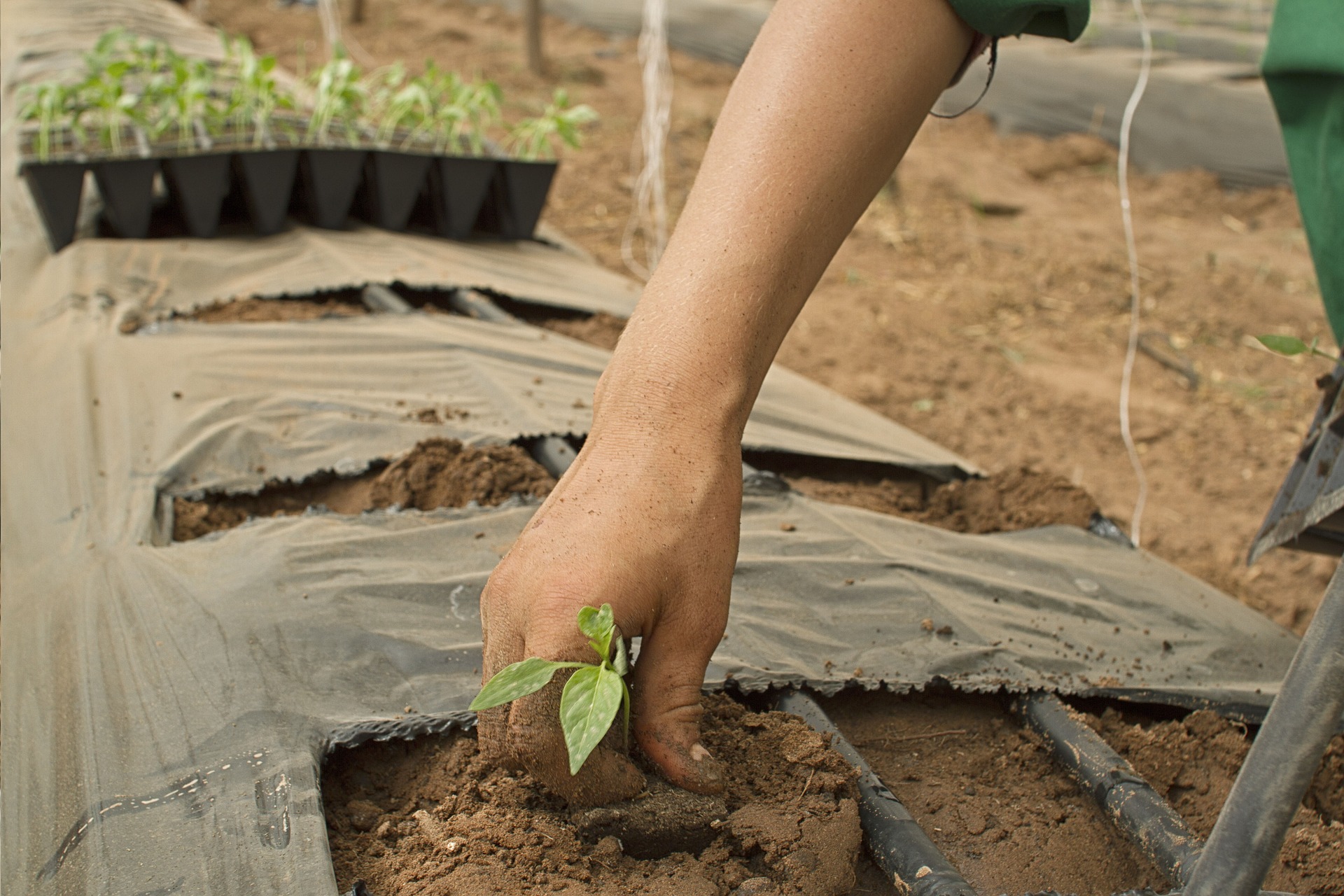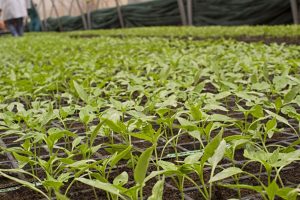
Organic farming is a method of agricultural production that aims to prioritize environmental sustainability, soil health, and the well-being of both plants and animals. It involves growing crops and raising livestock without the use of synthetic chemicals, genetically modified organisms (GMOs), antibiotics, and synthetic hormones. Instead, organic farmers rely on natural processes and techniques to enhance soil fertility, control pests and diseases, and promote overall ecosystem health.
The primary goal of organic farming is to produce healthy, high-quality crops while minimizing the negative impact on the environment and promoting biodiversity. There are numerous methods of organic farming, but five (5) are discussed below:
- Natural Pest Control: Organic farming employs various methods to manage pests without synthetic pesticides. These include introducing beneficial insects, using traps, practicing crop diversity, and employing techniques like companion planting (planting crops that benefit each other) and releasing pheromones to disrupt pest mating.
- Water Management: Organic farming promotes efficient water use through practices like drip irrigation, rainwater harvesting, and mulching, which helps retain soil moisture and prevent water wastage.
- Organic Fertilizers: Organic farmers use natural fertilizers like compost, manure, bone meal, and green manure (cover crops that are tilled into the soil) to provide essential nutrients to plants
- Crop Rotation: Crop rotation is the practice of planting different crops in sequence on the same piece of land. It helps to maintain soil fertility, reduce pest and disease pressure, and prevent soil erosion. Different crops have different nutrient needs, and rotating them helps replenish and balance soil nutrients.
- Composting: Compost is a natural fertilizer produced by decomposing organic matter, such as kitchen scraps, plant residues, and animal manure. Composting improves soil structure, enhances nutrient content, and supports beneficial microbial activity in the soil.

The Benefits of Organic Farming.
- Environmental conservation: Organic farming practices promote biodiversity, soil health, and water quality. By avoiding synthetic pesticides and fertilizers, it helps reduce soil and water pollution, protects beneficial insects and wildlife, and conserves natural habitats.
- Healthier food: Organic produce is generally free from synthetic pesticides, herbicides, and genetically modified organisms (GMOs). As a result, organic foods are considered to have lower levels of harmful chemicals, making them a safer and healthier choice for consumers.
- Soil fertility and long-term sustainability: Organic farming focuses on building soil health through practices like crop rotation, composting, and green manure. These methods enrich the soil with essential nutrients, enhancing its fertility and ensuring long-term sustainable agriculture.
- Reduced greenhouse gas emissions: Organic farming tends to have lower energy use compared to conventional farming, which relies heavily on fossil fuel-based inputs. By using fewer synthetic inputs and adopting agroecological practices, organic farming can contribute to reducing greenhouse gas emissions.
- Improved water management: Organic farming often employs practices that enhance water retention in the soil, reducing water runoff and soil erosion. This can lead to better water quality and availability in the surrounding environment.
- Resistance to pests and diseases: Organic farmers utilize natural methods to control pests and diseases, such as crop rotation, beneficial insects, and resistant plant varieties. These approaches promote the development of stronger and more resilient crops over time.
Challenges of Organic Farming.
- Lower yields: Organic farming often yields lower crop production compared to conventional methods. The absence of synthetic pesticides and fertilizers can result in reduced pest and weed control and lower nutrient availability, leading to lower yields per unit area.
- Limited availability of organic inputs: Organic farmers rely on natural sources of nutrients and pest control, such as compost, manure, and beneficial insects. However, obtaining sufficient quantities of these inputs can be challenging, especially for large-scale operations.
- Time and labor-intensive: Organic farming practices often require more manual labor and time compared to conventional farming. Tasks like hand weeding, composting, and crop rotation demand more effort and resources.
- Knowledge and expertise: Transitioning to organic farming requires specific knowledge and expertise in organic techniques, pest management, and soil health. Farmers need to be trained and supported in adopting these practices effectively.
- Market demand and pricing: While the demand for organic products has been increasing, it can still be limited in some regions. Additionally, organic products may command higher prices, but farmers might face challenges in securing fair prices and finding stable markets for their produce.
In conclusion, organic farming is highly beneficial and has numerous benefits, such as environmental conservation, soil sustainability, it also comes with its unique challenges ranging from time and labor-intensive to market demand and pricing. However, with adequate resources and right knowledge, farmers can overcome any challenge they might face and take advantage of this beneficial system of agriculture.
Featured Photo Credit: Pixabay
Photo Credit: Pixabay


